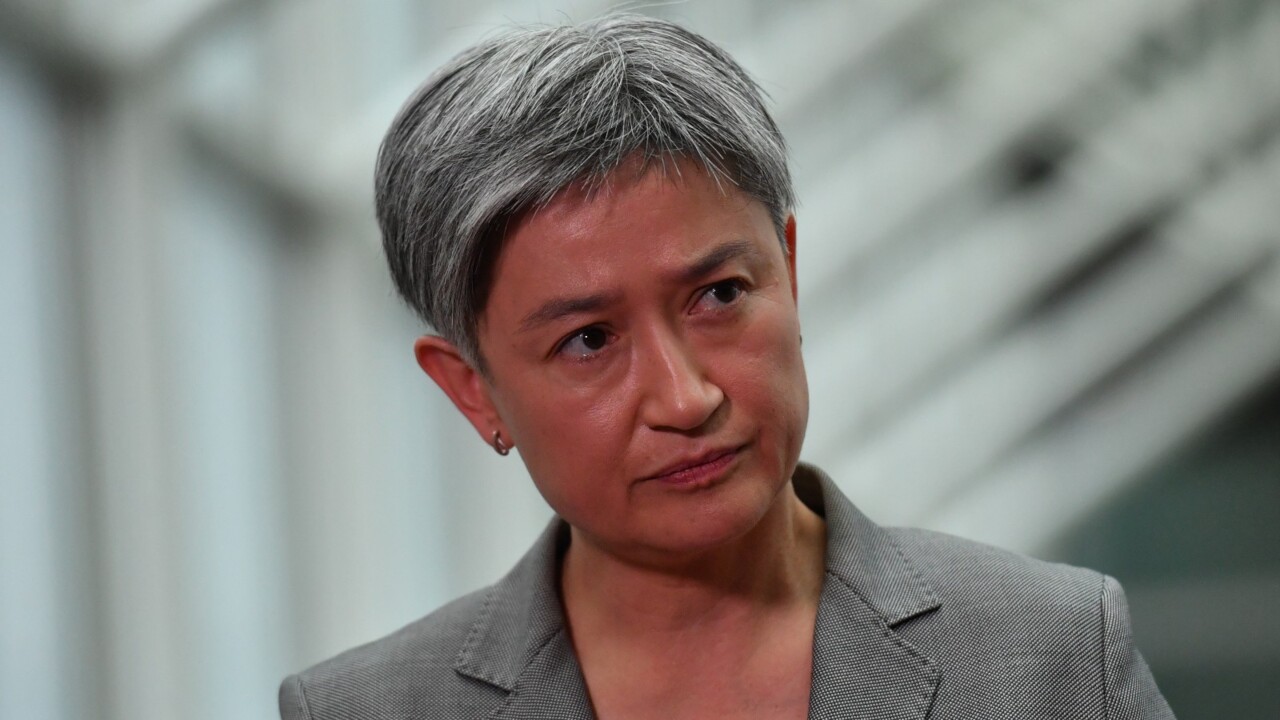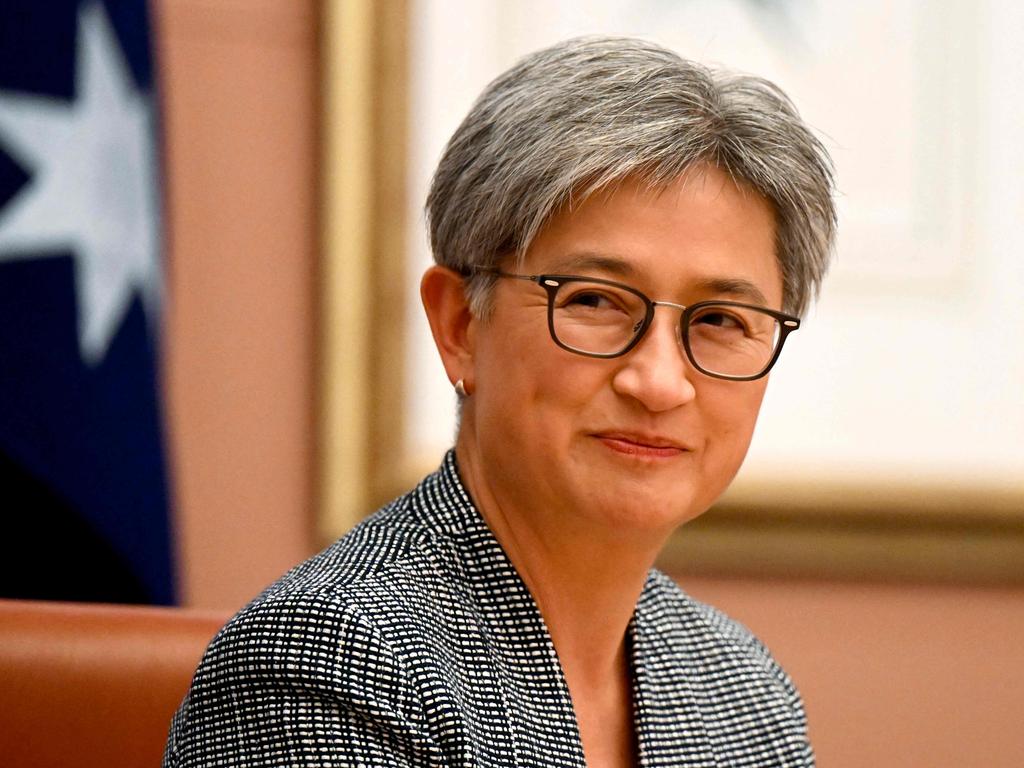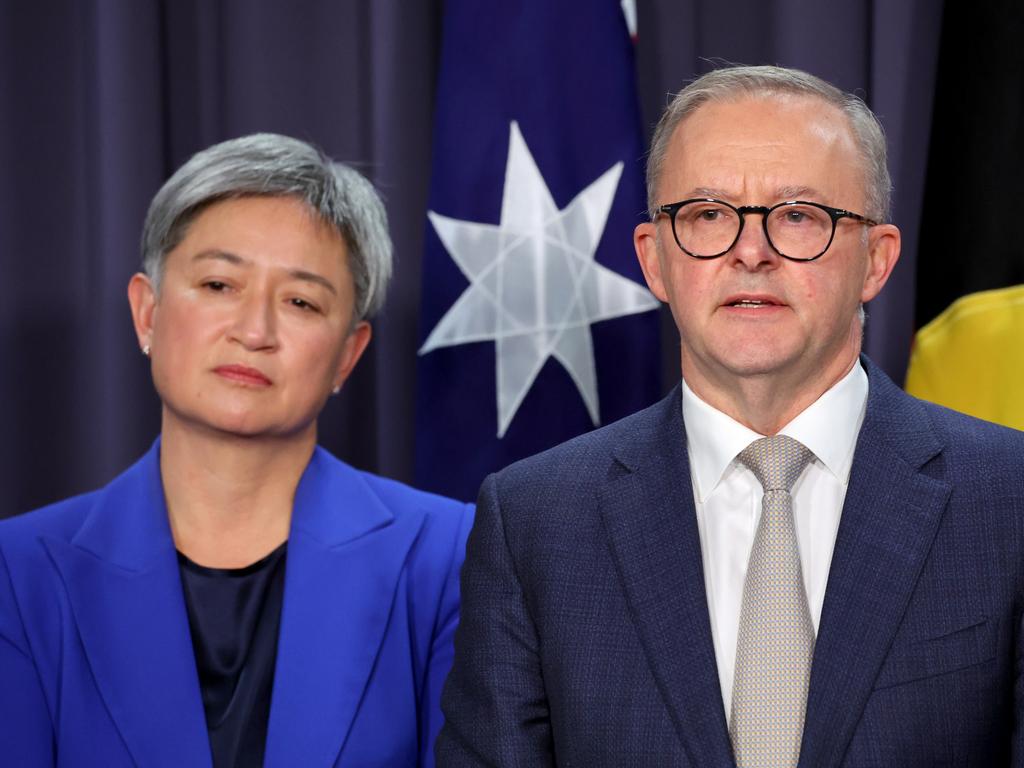
The rollout of this policy shift has been a shambles. On Monday evening, after changes were noticed on the website of the Department of Foreign Affairs and Trade to the official language describing Jerusalem as Israel’s capital, the Foreign Minister’s office was telling journalists there was no change to Australian policy. Twelve hours later, a complete reversal was announced by Wong.
Israeli Prime Minister Yair Lapid is a good friend of Australia. He spent a gap year here at a Jewish youth camp. But even he reacted with astonishment, saying: “We can only hope that the Australian government manages other matters more seriously and professionally.”
In withdrawing recognition of Jerusalem as the capital of Israel, the Labor government is damaging its relationship with a close and trusted partner.

Australia’s relationship with Israel delivers us genuine value in technology, intelligence, counter-terrorism and defence. It is our closest and most reliable partner in the Middle East, an unstable region from which many security threats to Australia emanate.
Israel’s intelligence and insights into these threats have saved Australian lives. An Islamic State plot to bomb an Etihad flight from Australia in 2017 was foiled in part because of intelligence provided by Israel.
But not only is the decision damaging in its own right, it is also at odds with regional opinion.
Many of Israel’s Arab neighbours, such as the United Arab Emirates and Bahrain, are pursuing closer ties with Israel precisely because they see a relationship with Israel as vital to improving regional peace and stability. The Labor government seems to be heading in the opposite direction.
When dealing with international relations, it is always good to start with the facts. The facts are these.
When Australia first recognised the state of Israel, under the Chifley Labor government in January 1949, Israel was in control of West Jerusalem. Jerusalem is the home of all of Israel’s national institutions, from the Knesset to the Prime Minister’s Office and the Supreme Court.
Since that time, countless Australian foreign ministers and prime ministers, Labor and Liberal, have met their Israeli counterparts in Jerusalem, a simple recognition of that fact.

Russia and the US, who agree on very little these days, both consider Jerusalem to be the capital of Israel.
Labor says it supports a two-state solution. But under every conceivable two-state solution discussed and negotiated over many decades, Jerusalem will remain the capital of Israel. Labor seems to think otherwise.
Far from advancing the cause of peace, this Labor reversal only sets peace back. By denying Israel’s claim to Jerusalem, Labor’s policy provides a tailwind to extremists, and states such as Iran, who would like to see Israel wiped off the map and who insist that Israel has no rightful place in the region. Hezbollah will be cheering this Labor announcement.
What consequences will follow from this policy? Will Anthony Albanese and Wong now refuse to meet Israeli counterparts in Jerusalem, as countless numbers of their Labor predecessors have done?
Russia claims Ukraine is not a country. Does this mean Australia will now withdraw recognition from Kyiv as the capital of Ukraine, citing it as disputed? The notion is preposterous, but this is the logical consequence of a policy that is bereft of moral fibre.
The abrupt reversals in Labor policy on this issue, and its announcement in the absence of any national interest justification, raise the question of whether this policy on the run is driven solely by internal Labor Party politics, for which Israel remains a hot-button issue.
This is no way to conduct foreign policy.
Dave Sharma, the former member for Wentworth, was the Australian ambassador to Israel from 2013 to 2017.







The Labor government’s decision to cease recognising Jerusalem as Israel’s capital is damaging and perplexing. Foreign Minister Penny Wong has failed to articulate any national interest reason for this abrupt reversal in Australian foreign policy. And the government’s failure to inform Israel before announcing such a far-reaching decision, a common courtesy in international relations, has needlessly harmed an important bilateral relationship.